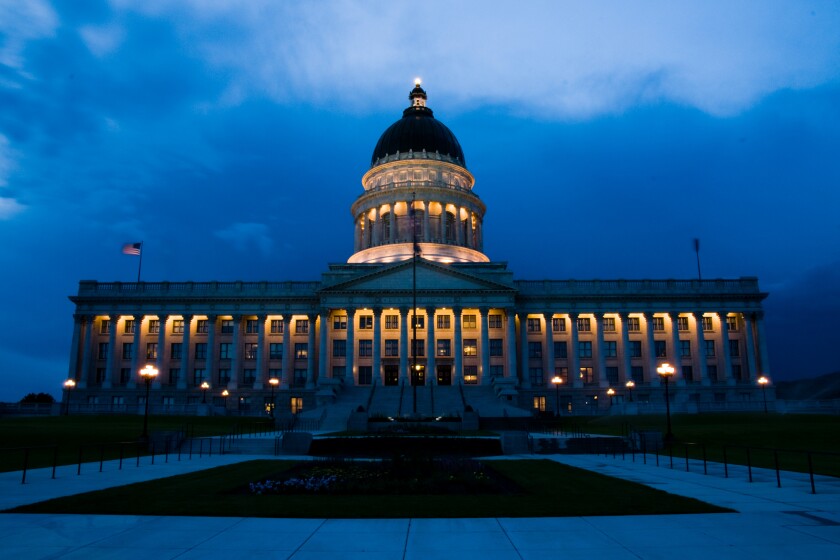If Republican leaders took a closer look, they would find that DEI aligns closely with conservative values: self-reliance, equal opportunity and the principle that every American deserves a fair shot. DEI is about making sure that every individual, regardless of background, has the tools and support to contribute meaningfully to our society. It promotes cultures in workplaces, schools and other institutions where everyone has a better chance to be seen, heard and valued.
President Donald Trump and other conservatives are attacking DEI by inappropriately using the 2023 U.S. Supreme Court ruling that held that the use of race in college admissions violated the equal protection clause of the 14th Amendment. This decision has been interpreted by critics of DEI as a broader rejection of policies that consider race in decision-making, including in hiring, training and resource allocation — core aspects of many DEI programs.
But as Lezli Baskerville, president and CEO of the National Association for Equal Opportunity in Higher Education, reminds us, “DEI is not affirmative action, nor is it akin to affirmative action.” DEI does not employ quotas or other forms of mandated preferential treatment. She told me that after affirmative action became so “incendiary,” she and a small group of attorneys crafted and advanced the notion and definition of DEI that became “widely accepted across unlikely ally groups for more than 30 years.”
Black public officials, many of whom are longtime supporters of DEI, are speaking out more forcefully. Cleveland Mayor Justin Bibb, president of the Democratic Mayors Association, told the news outlet TheGrio that mayors can demonstrate how DEI strengthens the nation, rejecting the false choice between DEI and merit. Baltimore Mayor Brandon Scott launched the “Definitely Earned It” campaign to reframe the harmful “DEI hire” narrative. Birmingham, Ala., Mayor Randall Woodfin branded anti-DEI efforts as the “Alabama-fication” of the federal government, pointing out that DEI benefits not just minorities but also white women and veterans.
The World Mayor Project maintains an extensive list of American cities’ equity offices, including in Atlanta; Austin, Texas; Philadelphia; Seattle; and St. Louis. Those ongoing initiatives substantiate that many local officials are not caving in to federal and state pressure to abandon diversity initiatives, despite DEI opponents’ claims that the nation has already paid its debt for past injustices and that the Civil Rights Act of 1964 ended all discrimination.
If those critics were being intellectually honest, they would concede that the data tells a different story: African Americans remain at or near the bottom of nearly every indicator of social and economic well-being, from income and education to health and life expectancy. These gaps are not coincidences: They are the outcomes of long-standing systems and policies practiced by the private sector and governments at all levels, as I have written about here.
The good news is that public officials have the power to correct some of those wrongs. To begin with, they should reassure constituents that their governments are firmly committed to upholding equal rights, equal opportunities and equal protections. This message should also acknowledge that structural inequalities still exist and that they must be intentionally addressed.
Then, to address some of those inequities, governments must improve how they deliver public services and how they guarantee universal access to those services. This includes finding better ways of expanding language assistance, enhancing disability accommodations and increasing outreach to underserved communities. In both cities and rural areas, underserved populations are often disproportionately made up of minorities. But regardless of race, gender or class, when government focuses on the efficient and equitable delivery of public resources, everyone benefits.
Another powerful way that public officials can carry forward the intent behind DEI is to uphold inclusive government hiring practices and ensure equal opportunities in public contracting — not just in rhetoric, but through action. There’s no need for mandatory diversity statements to build a workforce of capable, diverse employees or to support small and local businesses with proven track records of serving all communities.
We also need to keep in mind that public officials have authority over the resources and tools to invest in community development. By supporting affordable housing, education and health-care initiatives that benefit all of their residents, they can meaningfully address systemic inequities — without needing to brand these efforts as DEI.
Now is not the time for public officials to let the fake controversy of DEI keep their communities divided. It’s a time for courageous leadership to show up to defend one of the most sacred and conservative principles of our republic: the distinctiveness and dignity of every human being.
Governing’s opinion columns reflect the views of their authors and not necessarily those of Governing’s editors or management.













